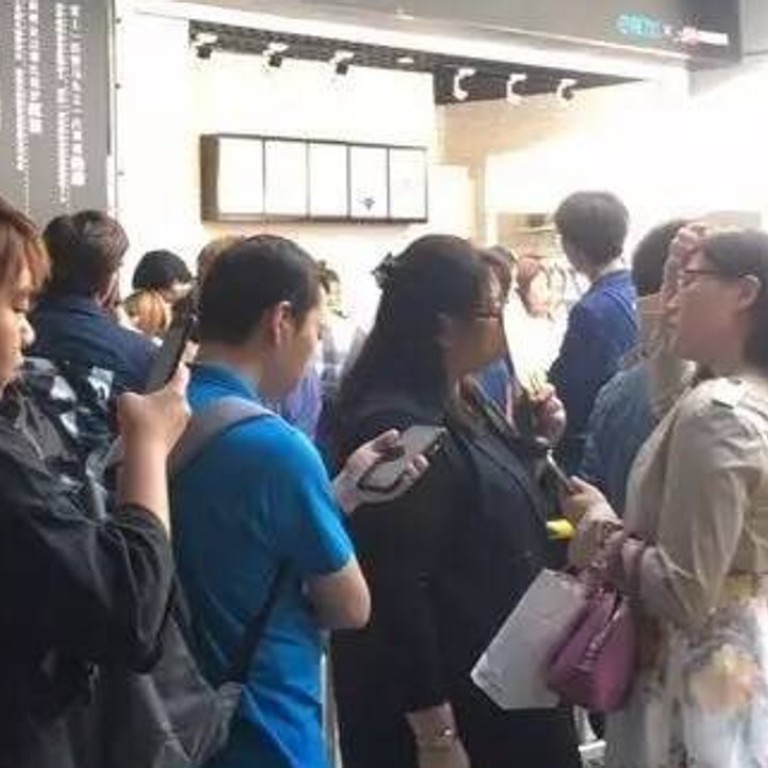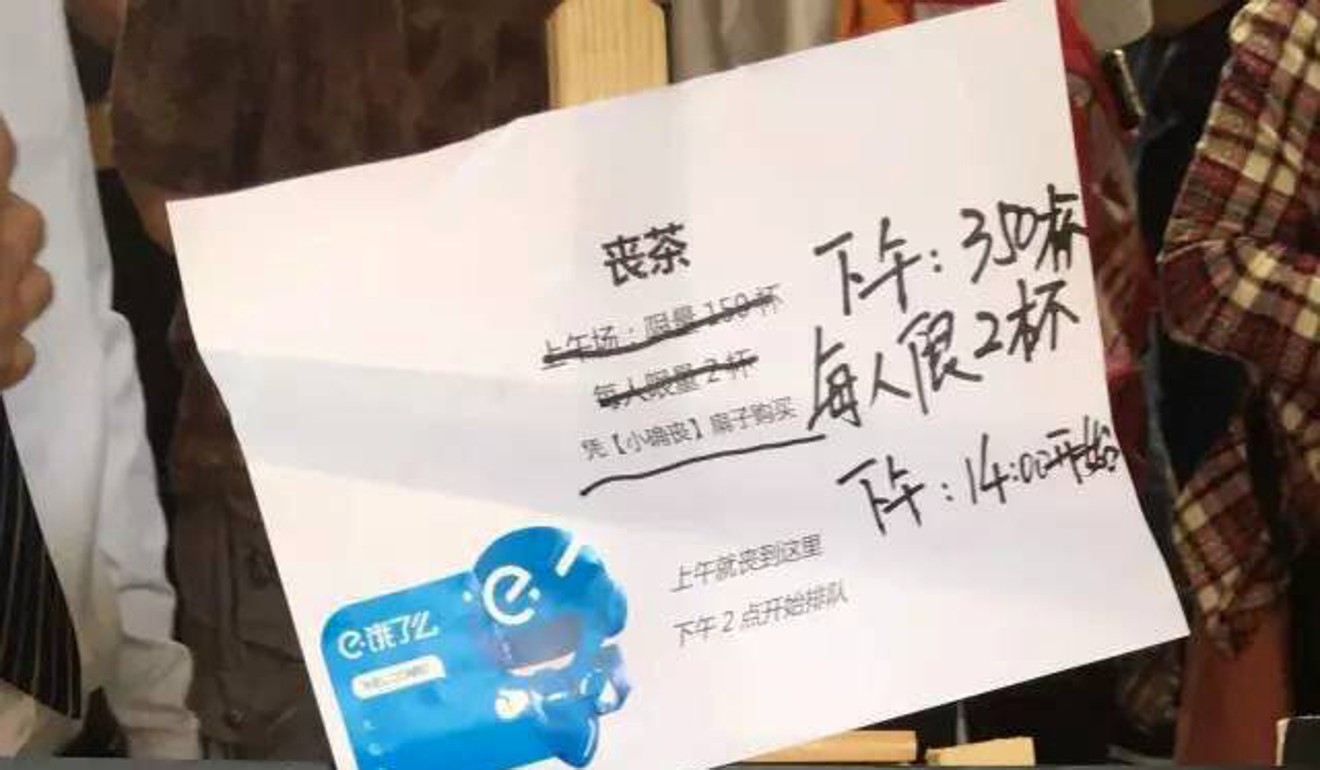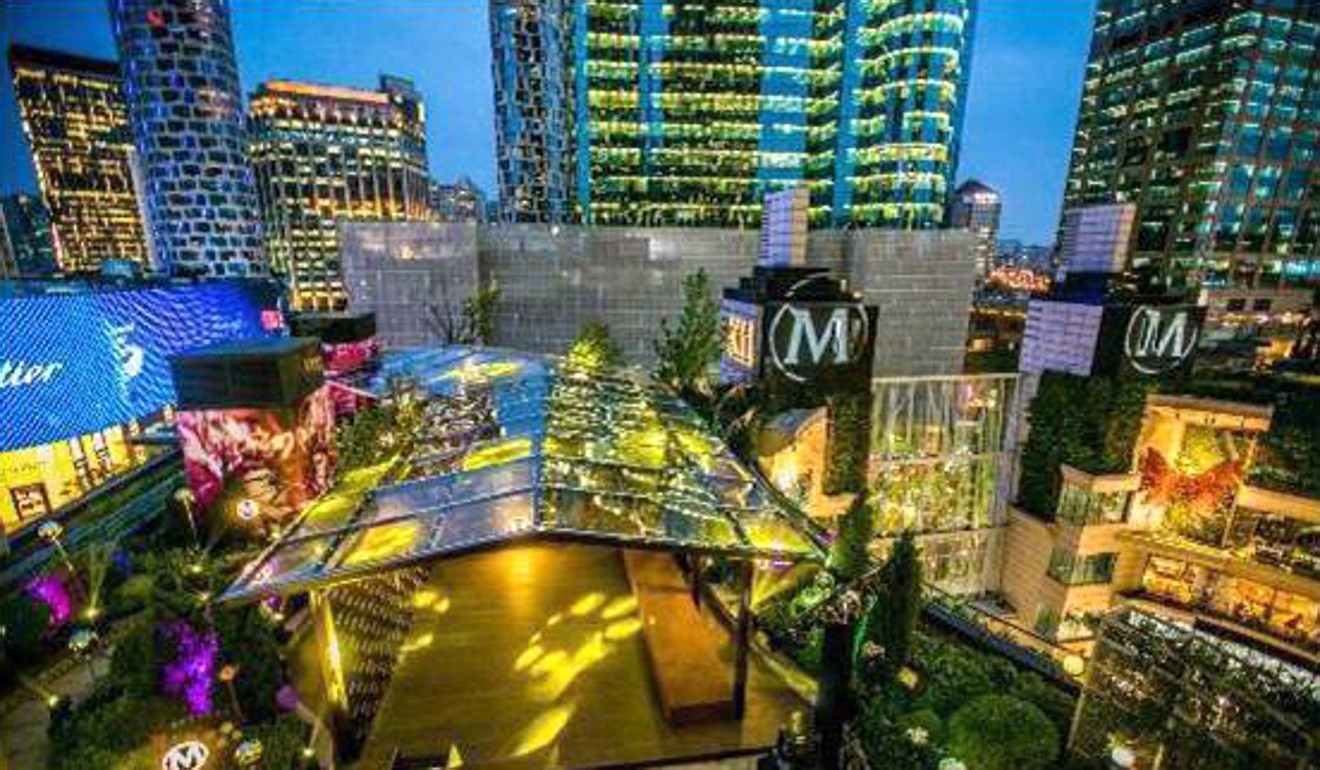
The ‘Life sucks’ cafe, other pop-up shops draw Shanghai consumers with a whiff of sarcasm
Pop-up stores, or temporary shops, are riding a wave of popularity with consumers in major Chinese cities by offering a play on the irreverence of modern life
Social media platforms in China are abuzz with postings of consumers in Shanghai taking part in an unusual form of retail therapy that seems to speak to the offbeat or the irreverent.
The stir can be traced to pop-up stores, or small, temporary outlets designed to test new products, drive up sales, and make use of a low-cost approach to building brand awareness, said market researchers.
A case in point is ORZ Cha, which can be translated as “Life Sucks”, a pop-up tea shop in downtown Shanghai which opened for four days until May 1. Jointly run by China’s food delivery service provider Ele.me and mobile app Netease News, the shop attracted long queues by offering a selection of teas around some unusual themes. These include oolong tea for those whose whole life is a total failure, green tea for those who always work overtime without getting a pay rise, or black tea for those who are more than a little overweight.

Ele.me told kuaixiaopin.com, a consumer products portal, that the concept was making use of content marketing to better interact with younger consumers who are frequent users on its platform.
A similar tone was behind “breakup”, a pop-up flower shop that opened for one day in Shanghai’s downtown Jing’an district on May 20, because its pronunciation is similar to “I love you” in Mandarin.
“We have seen a clear trend of a growing popularity of pop-up stores especially in big shopping malls in first-tier cities in China,” said Raina Li, a consultant at market research firm Kantar Retail in Shanghai. She added that such stores cover a wide range of industries, including food and beverage, food delivery and cosmetics.
Pop-up stores are also fairly easy to set up and take down, as they don’t require long-term leases or labour costs.
The pop-up concept is expected to undergo explosive growth, with up to 3,000 of the temporary stores expected nationwide by 2020, or nearly tenfold the level in 2015, according to a report from RET, a commercial real estate service provider in China.

Li said that the majority of pop-up stores were opened in major cities, where tech-savvy younger consumers are willing to explore new ideas and products.
“In such a diversified and big market, shops have lots of ways to attract consumers,” said Li. “The popularity of the “Life sucks tea shop” idea or the“breakup” flower shop reflect that as long as a shop can reach out to a particular group of consumers with a creative idea, foot traffic will follow.”
It’s a boon for shopping mall operators as well, since they can benefit from the heavy foot traffic to help boost sales of other tenants. Some shopping malls have even saved space for future pop-up stores thanks to the growing popularity of the new model, she said.
The popularity of the “Life sucks tea shop” idea or the“breakup” flower shop reflect that as long as a shop can reach out to a particular group of consumers with a creative idea, foot traffic will follow.
Yet, the pop-up concept might not be enough to sustain the interest of consumers, market watchers said.
Despite the ability to draw long queues of consumers, reviews of the “Life sucks” tea shop were generally negative, with some posts on dianping.com suggesting the quality of the tea was mediocre at best.
“I didn’t go to the tea shop as I doubt it would be my cup of tea,” said Serena Zhang, an office worker in Shanghai.
However, the 30-something treated herself to a 28-yuan (US$4) Magnum ice-cream at its one-month-only pop-up store at the K11 shopping mall on Huaihai Road.
“For me, flavour is the king,” she said.

